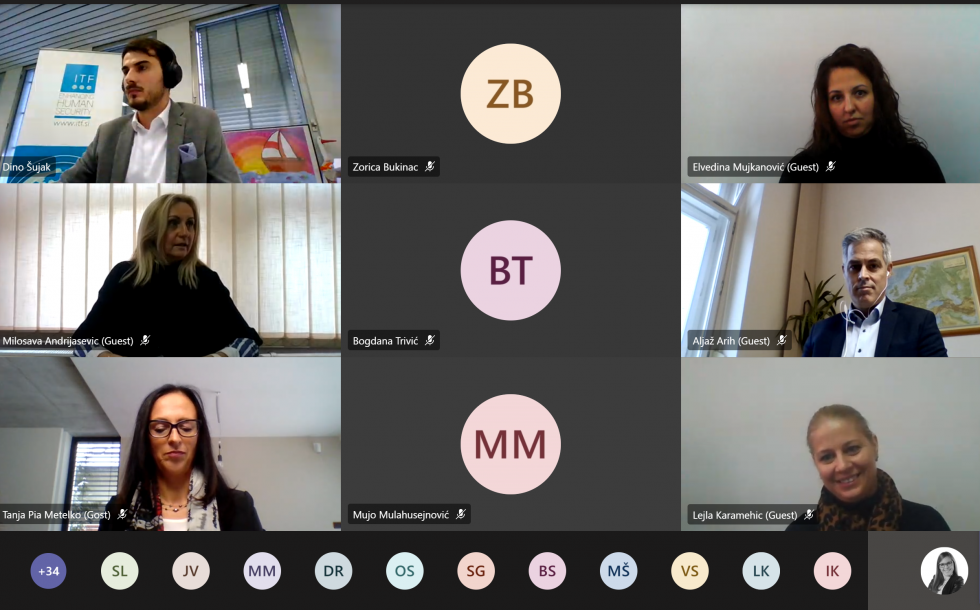The "School and Peer Mediation in Bosnia and Herzegovina" project concludes
- Ministry of Foreign Affairs
- Embassy of the Republic of Slovenia in Sarajevo
The final event was attended by representatives of the Slovenian Ministry of Foreign Affairs, Embassy of the Republic of Slovenia in Sarajevo, ITF Enhancing Human Security, Concordia Mediation Institute, and the European Centre for Dispute Resolution, and by representatives of teachers, coaches, and school and peer mediators. The project was initiated and funded by the Ministry of Foreign Affairs.
The Ministry supported the development cooperation project for the first time in the 2017/2018 school year. Modelled on successful school and peer mediation practices in Slovenia, the project transfers Slovenian experience to the school environments of countries facing conflict or post-conflict situations. Such an approach promotes the spread of tolerance and dialogue among young people, which, in the long run, has a positive impact on the entire population of a given environment.
The school and peer mediation project in BiH is carried out through the ITF Enhancing Human Security. Project partners include the Concordia Mediation Institute and the European Centre for Dispute Resolution. So far, the project has involved 24 primary schools and provided training for 91 teachers, including 16 teacher coaches, and more than 480 pupils have participated.
The main goal of school and peer mediation is to train teachers and pupils to resolve their conflicts in a peaceful manner, to strengthen tolerance, dialogue, and equality both in school and in other areas of everyday life. Through practical exercises and role-playing, teachers and pupils learn basic mediation techniques and acquire skills for conflict resolution. The project is particularly important in Bosnia and Herzegovina, as it significantly strengthens interethnic and intercultural tolerance and dialogue in a constructive and peaceful manner with a view to building sustainable peace in a post-conflict and transition society.
Project activities continued to be implemented during the COVID-19 pandemic and the project was successfully concluded despite the numerous challenges that arose during this period. This confirms the great commitment of everyone involved and the vital importance of mediation in the school environment in BiH. The Ministry will donate computer equipment to the schools involved in the project.
Participants at the closing event were keen to point out that the mediation project is one of the best possible forms of development cooperation, as it makes young people aware that they can do a lot of good for society. At the same time, they become more mature, learn to be more tolerant in relationships with their peers, develop communication skills, and apply the acquired knowledge in all areas of life.
Based on such positive experience, the Ministry will continue to support the school mediation project and extend it to a large number of schools throughout Bosnia and Herzegovina as well as other Western Balkan countries.
Na podlagi dobrih izkušenj bo Ministrstvo za zunanje zadeve nadaljevalo s podporo projektu šolske mediacije in ga razširilo na večje število šol na celotnem ozemlju Bosne in Hercegovine in tudi v druge države Zahodnega Balkana.

